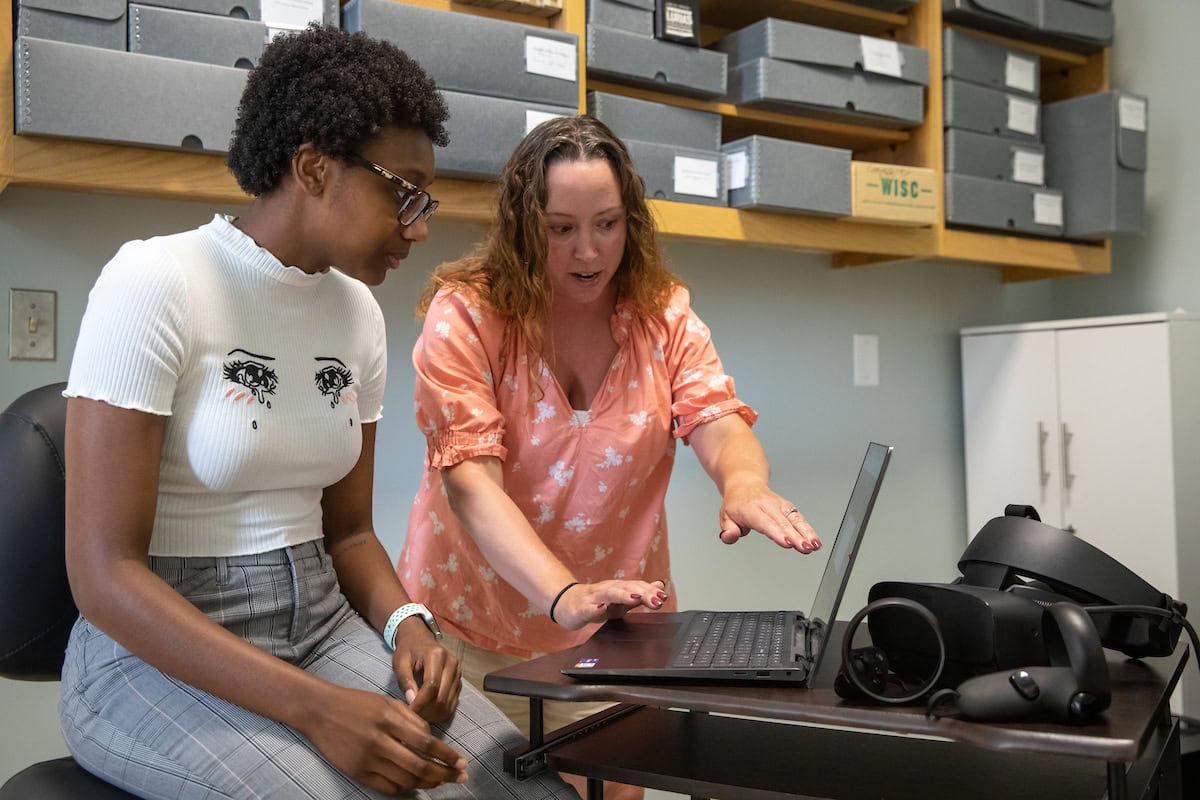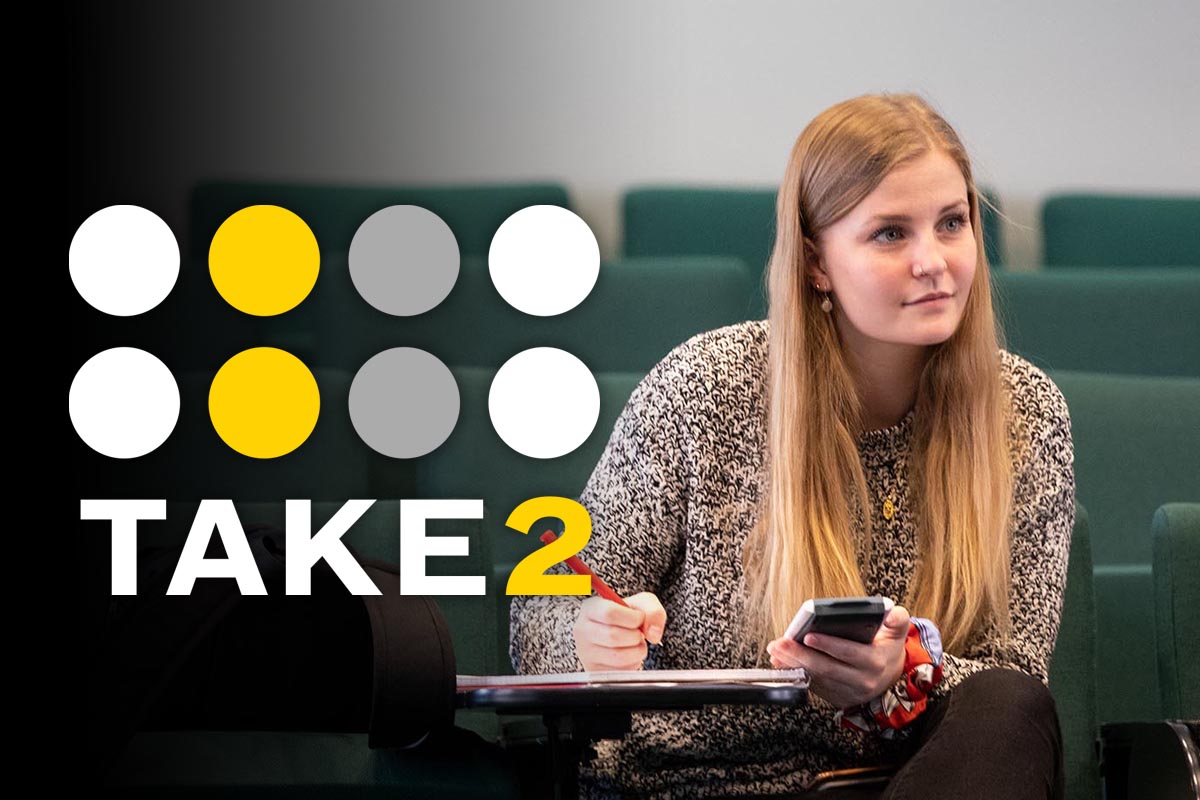Morality and risk-taking research continues during Summer Research Project
This story is part of an ongoing series featuring the work of students and faculty participating in Randolph’s 2022 Summer Research Program.

Jacqueline Clardy-Josephs ’23 and psychology professor Blair Gross review data for their summer research project.
The connection between morality and risk-taking has long interested psychology professor Blair Gross.
“It’s part of something called embodied morality, this idea that our morals evolved from protecting physical resources,” Gross said. “Outside of that, we’ve been looking at this risk-taking aspect of cheating and morality. This idea that cheating is a risky task, and sort of going against morality is a risky task.”
This summer, Gross and Jacqueline Clardy-Josephs ’23 have worked to further her research on the topic, synthesizing already-collected data for Randolph’s Summer Research Program.
“I was really interested in a better way to measure risk-taking,” Gross said. “It’s really hard to measure risk-taking in a lab. A lot of it focuses around finances, which I think is risk-taking, but only part of it. There’s this other aspect of risk-taking, things like rock climbing, skydiving, and bungee jumping.”
Gross and Holly Tatum, Randolph’s Mary Sabel Girard Chair in Psychology, first tested a possible behavioral method two years ago.
One involved the adventurous realm—what Gross referred to as sensation-seeking—and asked participants to walk a plank from the top of a tall building within a virtual reality system that heightened the stakes.
“It’s very realistic. You feel like you’re at the top of a building,” Gross said. “I’ve done it several times and every time I’ve done it, I’m still struck anew with feelings of, ‘I don’t want to walk out’ and ‘I’m just in a lab.’”
The second part of their research looked at cheating, asking high school students to solve a challenging math problem, then grade and pay themselves based on their answers.
“We gave them a five-minute span to see how many they could actually complete and then grade. And if you got four right, give yourself $4,” Gross explained. “We were entirely out of the room and allowed them to grade and score themselves in a windowless, closed, locked room. And we told them to recycle all of their answers and put money in a lockbox. After, we could go back and go through to see how many people cheated.”
This summer, Gross and Clardy-Josephs have been looking at the data that was collected and working on two papers that will eventually be published about the research.
One focuses on the behavioral measure the earlier project was trying to validate, and the other looks at what predicts risk-taking behavior.
Along the way, they attended the Association for Psychological Science’s annual convention in Chicago, funded by Clardy-Joseph’s RISE grant. Clardy-Josephs also earned certification from the Institutional Review Board to conduct research involving human subjects.
She’d eventually like to attend graduate school, with an eye toward a master’s in public policy, and said getting research experience was key.
“I am really interested in working with marginalized communities that face issues with the law, focusing on mental health and race,” said Clardy-Josephs, a psychology major. “Ideally I would like to do some kind of research with that.”
She’s also gained experience working independently on a self-paced schedule.
“Jackie came in very cognizant that this experience is going to be useful at some point in her career, and I think that’s what we’re finding,” Gross said. “The things we’re asking her to do are really going to be helpful moving forward in any capacity, whether it’s looking at data that’s been collected or synthesizing and putting together data you already have.
“That’s the beauty of the Summer Research Program,” she added. “It’s teaching skills outside of just content.”
Tags: Blair Gross, psychology, summer research, summer research 2022, Summer Research Program
